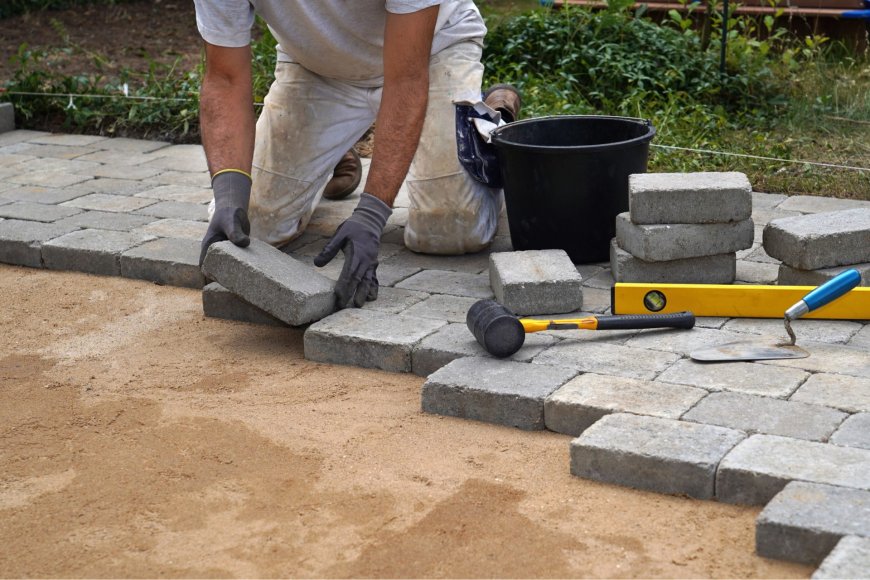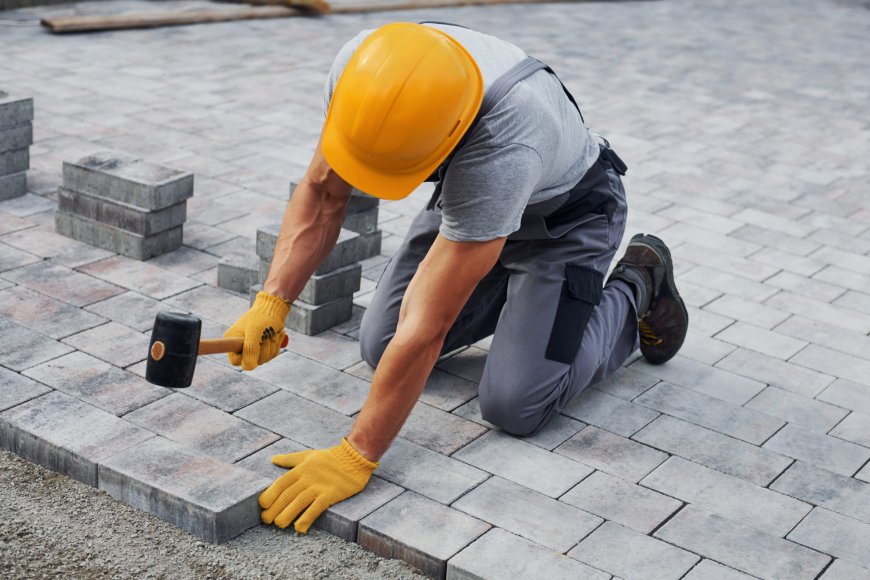How Professional Block Paving Contractors Make Mistakes to Avoid
How Professional Block Paving Contractors Make Mistakes to Avoid

Professional Block Paving Contractors:
Block paving is an essential part of landscaping that adds both functionality and aesthetic appeal to driveways, patios, and walkways. Whether you are planning to renovate your driveway, create a garden path, or lay a stunning patio, hiring professional block paving contractors can save you time and ensure a high-quality finish.
Poor Ground Preparation
Mistake: Skipping Proper Ground Preparation
One of the most analytical phases in block paving is arranging the ground. If the ground is not properly prepared, your driveway or patio could face problems such as uneven surfaces, shifting blocks, or poor drainage. Contractors sometimes fail to properly compact the sub-base, leaving the surface susceptible to shifting over time.
How to Avoid It:
Professional contractors should begin by excavating the area to a depth of at least 150-200 mm (depending on the purpose of the area, e.g., a driveway needs to be deeper). They should then apply a sub-base layer, usually crushed stone or gravel, followed by thorough compaction. The correct compaction ensures a solid foundation and prevents settling over time. Avoiding this essential step can cause rough surfaces or early deterioration.
Incorrect Drainage Design
Mistake: Failing to Plan Proper Drainage
Block paving is notorious for trapping water if drainage is not properly accounted for. Many contractors fail to create the correct slope or incorporate drainage systems when installing block paving. Without the right slope, rainwater can pool on the surface, leading to puddles, moss growth, and even erosion of the surface beneath the blocks.
How to Avoid It:
A reputable contractor should ensure there is a slight slope (typically around 1:80) away from buildings and other structures to encourage water to flow off the surface. Furthermore, drainage channels should be installed in areas where water is likely to collect, such as at the edges of the driveway or patio. These channels can redirect water to appropriate areas, such as a drain or a soakaway. Proper drainage design is essential to prolong the lifespan of your block paving.
Using Low-Quality Materials
Mistake: Cutting Corners with Materials
While it may seem cost-effective, opting for cheap, low-quality paving blocks or sub-base materials can create long-term problems. Contractors sometimes use materials that may not be durable enough to withstand the wear and tear of heavy foot traffic, weather conditions, or vehicle load (in the case of driveways).
How to Avoid It:
High-quality paving blocks made from concrete or clay are designed to last for years without cracking or fading. Ensure that the contractor is using high-strength concrete blocks or durable clay pavers, especially in areas with heavy use. Premium materials will ensure that your paving remains intact, looking great, and functioning well for years to come.

Poorly Laid Jointing Sand
Mistake: Incorrect Application of Jointing Sand
After the paving blocks are laid, jointing sand is typically applied to fill the gaps between the blocks. Some contractors neglect to properly sweep or compact the jointing sand into the spaces, leaving gaps or uneven lines. This may result in uneven settlement, weed growth, or loose blocks.
How to Avoid It:
Once the blocks are laid, the contractor should ensure the jointing sand is swept evenly into the gaps and then compacted. This certifies that the sand resolves into the joints and stops shifting. Polymeric sand is a great option for the joints because it hardens when activated with water, creating a solid barrier against weeds and water infiltration. Properly laid jointing sand helps prevent movement between blocks and keeps the paving tight and secure.
Incorrect Cutting of Paving Blocks
Mistake: Inaccurate Cutting of Blocks
Contractors sometimes make the mistake of improperly cutting paving blocks to fit around corners or edges. Using improper tools or cutting carelessly can lead to rough, uneven edges that detract from the finished surface's appearance and performance.
How to Avoid It:
Contractors should use a proper block cutter to ensure clean, accurate cuts around corners, curves, and edges. Cutting should be done carefully to avoid damaging the blocks or creating uneven gaps. A clean, neat cut provides a polished finish and prevents water from entering the gaps between the blocks.
Conclusion:
Choosing a contractor who takes the time to do the job properly will result in a durable, aesthetically pleasing paving installation that lasts for many years. If you’re in need of a block paving contractor, be sure to ask about their experience, methods, and commitment to quality workmanship. With the right approach and a professional company like M&C Paving Northeast, you’ll have a beautiful, long-lasting paved surface that adds value to your property.
































































![https //g.co/recover for help [1-866-719-1006]](https://newsquo.com/uploads/images/202506/image_430x256_684949454da3e.jpg)
























![How Smart PMs Scale Their Careers in Any Org [TPG Live Recap]](https://tpgblog.com/wp-content/uploads/2025/06/2025-06-12-thumbnail-action.png?#)





















































